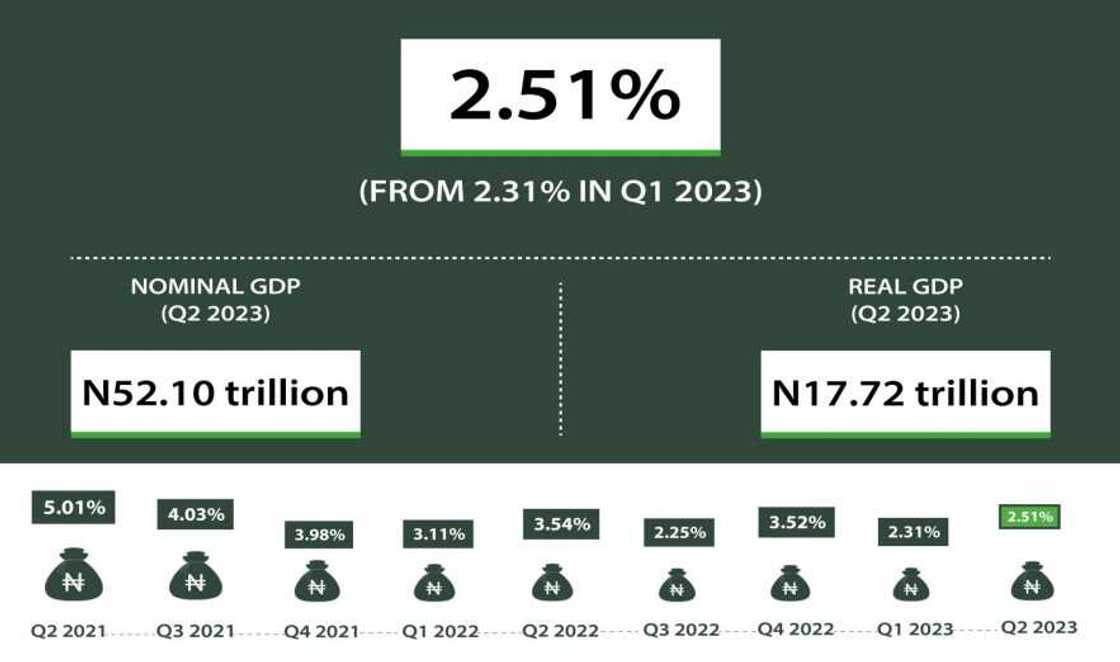Service Sector Leads as Nigeria's Economy Grows by 2.51% in First GDP Report Under President Bola Tinubu
- The latest report from the NBS has revealed that Nigeria's economy has improved in the second quarter of 2023
- The report is the first under the present administration of Bola Ahmed Tinubu
- Sectors such as telecommunications and information service, trade, and crop production were the best performing during the quarter
The National Bureau of Statistics has revealed that Nigeria recorded a Gross Domestic Product growth of 2.51% (year-on-year) in real terms in the second quarter of 2023 (April to June).
While this growth rate is slower than the 3.54% recorded in the second quarter of 2022, it is an improvement from the 2.31% recorded in the first quarter of 2023, Punch reports.

Source: Facebook
According to the report published by the National Bureau of Statistics (NBS) on Friday, August 25, 2023, the growth decline in Q2 2023, when compared to Q2 2022, may be attributed to the challenging economic conditions experienced.
Furthermore, NBS revealed that in the quarter under review, aggregate GDP stood at N52.1 trillion in nominal terms.
PAY ATTENTION: Сheck out news that is picked exactly for YOU ➡️ find the “Recommended for you” block on the home page and enjoy!
This performance is higher than the second quarter of 2022, which recorded an aggregate GDP of N45 trillion, indicating a year-on-year nominal growth of 15.77 per cent.
While in real terms, Nigeria's GDP stands at N17.72 trillion in the second quarter of 2023.
How the economy performed
A breakdown from NBS shows that the performance of the GDP in the second quarter of 2023 was driven mainly by the services sector, which recorded a growth of 4.42% and contributed 58.42% to the aggregate GDP.
The agriculture sector grew by 1.50%, an improvement from the growth of 1.20% recorded in the second quarter of 2022.
Top 10 contributing sectors to the economy in Q2, 2023
- Crop Production: 20.66%
- Trade: 16.80%
- Telecommunications & Information Services: 16.06%
- Crude Petroleum and Natural Gas: 5.34%
- Real Estate: 5.29%
- Financial Institutions: 4.78%
- Food, Beverage and Tobacco: 4.48%
- Construction: 3.23%
- Professional, Scientific, and Technical Services: 3.05%
- Other Services: 2.72%
Nigeria's oil savings account now in thousands
In another report showing how Nigeria's economy stretched, Legit.ng reported that Nigeria's oil savings have depleted.
ECA is a savings account retained by the Federal Government and is funded by crude oil sales higher than the budgeted oil price benchmark.
The report shows that the federal government has been unable to add a dollar to the account but has made consistent withdrawals.
Source: Legit.ng


